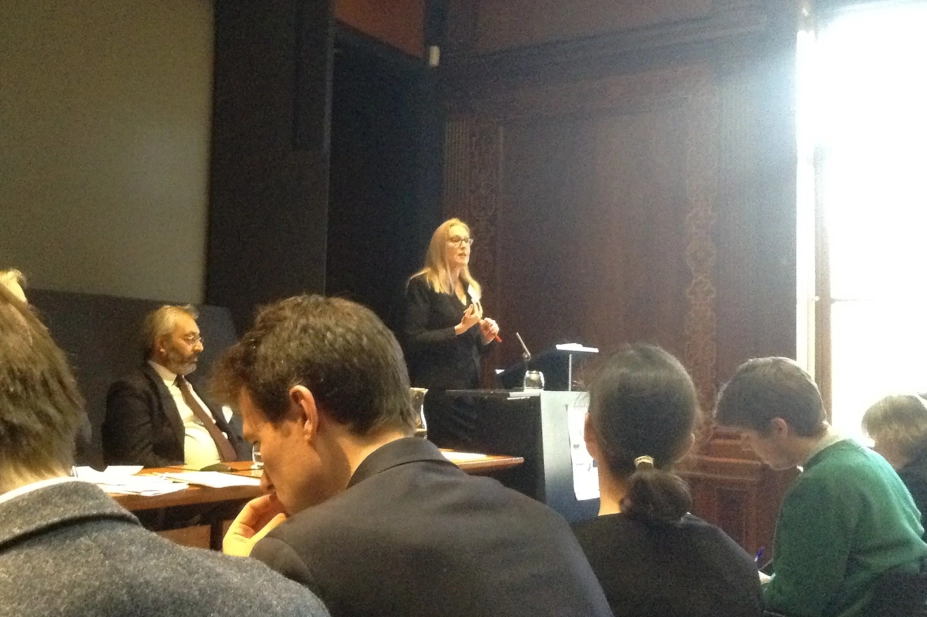
Corrinne Burns / The Pharmaceutical Journal
The UK is a world leader in diabetes research with some of the “brightest minds” working in the field, but urgently needs greater investment to translate that research innovation into clinical practice. That was the key message from Elizabeth Robertson, director of research at Diabetes UK, in her 2019 New Year lecture for the Royal Pharmaceutical Society and University College London (UCL).
In a press conference ahead of the lecture, held at the Royal Society in London on 10 January 2018, Robertson warmly welcomed the recently-published NHS 10-year plan’s focus on the prevention of diabetes, and said she “looked forward to more detail” on how this would be achieved. Diabetes UK was, she said, delighted that the plan includes doubling the number of referrals to the NHS’s type 2 diabetes mellitus type 2 diabetes mellitus (T2DM) prevention programme. To date, around 250,000 people have been recruited on to the programme since its launch in 2016.
However, Robertson argued that while the NHS spends around £10bn annually on diabetes care (for both type 1 diabetes mellitus [T1DM] and T2DM), far greater investment is needed to support research into early diagnosis, innovative treatment and personalised care. At the moment, for every £1 spent on diabetes, only 0.5 pence goes towards research, Robertson said — a figure that is “just not enough”.
Robertson also said she would like to see far greater translation of diabetes research into day-to-day clinical practice. In particular, she spoke of emerging evidence that diabetes is “an individual condition” that is experienced slightly differently by each patient — therefore, she said, prevention, diagnosis, treatment and long-term care must be managed in a more personalised way.
Looking to the future, there is reason for optimism, Robertson believes. She spoke of novel approaches to the treatment of T1DM, particularly in the development of the artificial pancreas. She highlighted research by Lucy Walker, professor of immune regulation at UCL, into autoimmune reactions against the insulin-producing beta cells in the pancreas. She also referenced a study — published in The Lancet
in December 2017 — in which almost half of patients with T2DM experienced remission following a primary care-led weight management programme. Pharmacists, she said, have “a key role” in the remission of T2DM.
Community pharmacist Imran Khan, speaking at a panel discussion ahead of Robertson’s lecture, said he would like to see “diabetes-friendly pharmacies” and specialist diabetes pharmacists. It is not enough, he said, to simply tell patients with T2DM to lose weight. Pharmacists need to understand the pathophysiology of diabetes so they can explain to patients, in a clear way, exactly how reducing body fat can improve their condition.
The latter point is also made in ‘Overcoming diabetes: living well in the twenty-first century’, a report from UCL’s school of pharmacy that was launched alongside Robertson’s lecture. Among six recommendations made in the report is a call to share knowledge about the genetic and natural causes of diabates in a widely accessible way, so that those at risk understand how the build-up of fat in the body’s internal organs can lead to insulin resistance. The UCL report also emphasises the need to treat those affected by obesity with respect, recognising that societal factors, as well as personal factors, contribute to the development of obesity. It also calls for the UK to be “assertively committed” to taking up opportunities for the prevention and cure of T1DM, “as and when technologies, such as suitable enterovirus vaccines or cell-based therapies, become available”.

